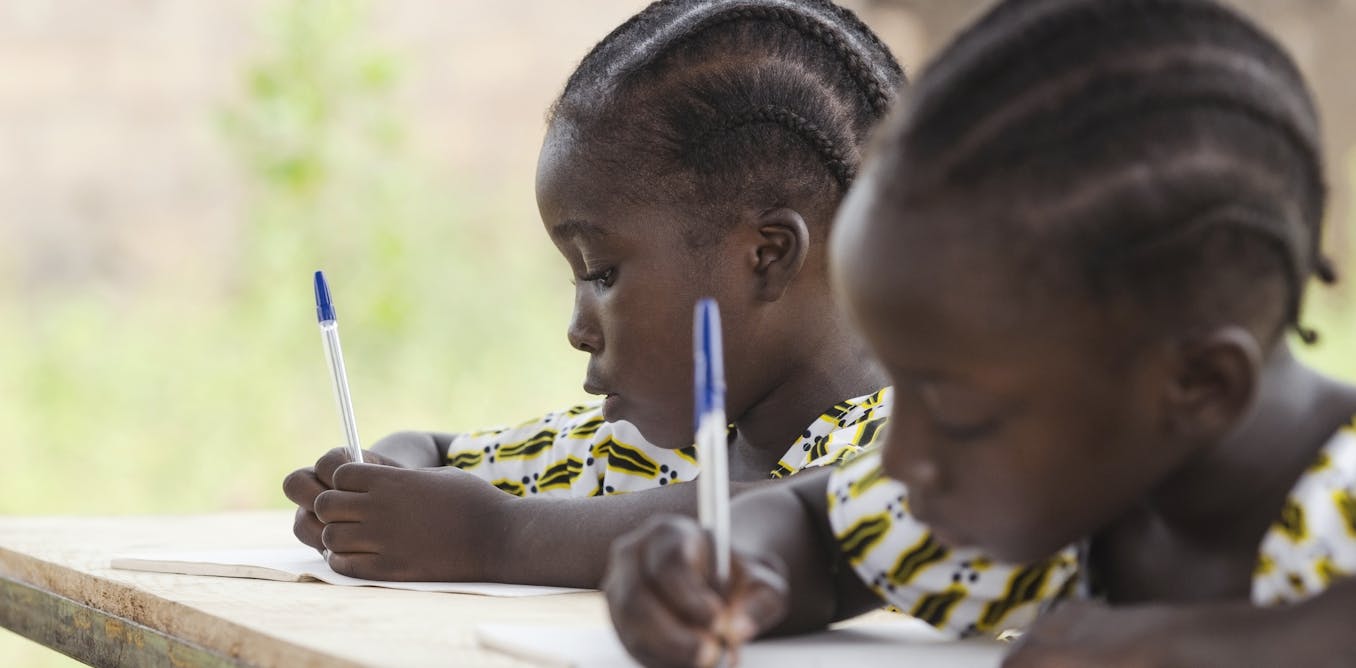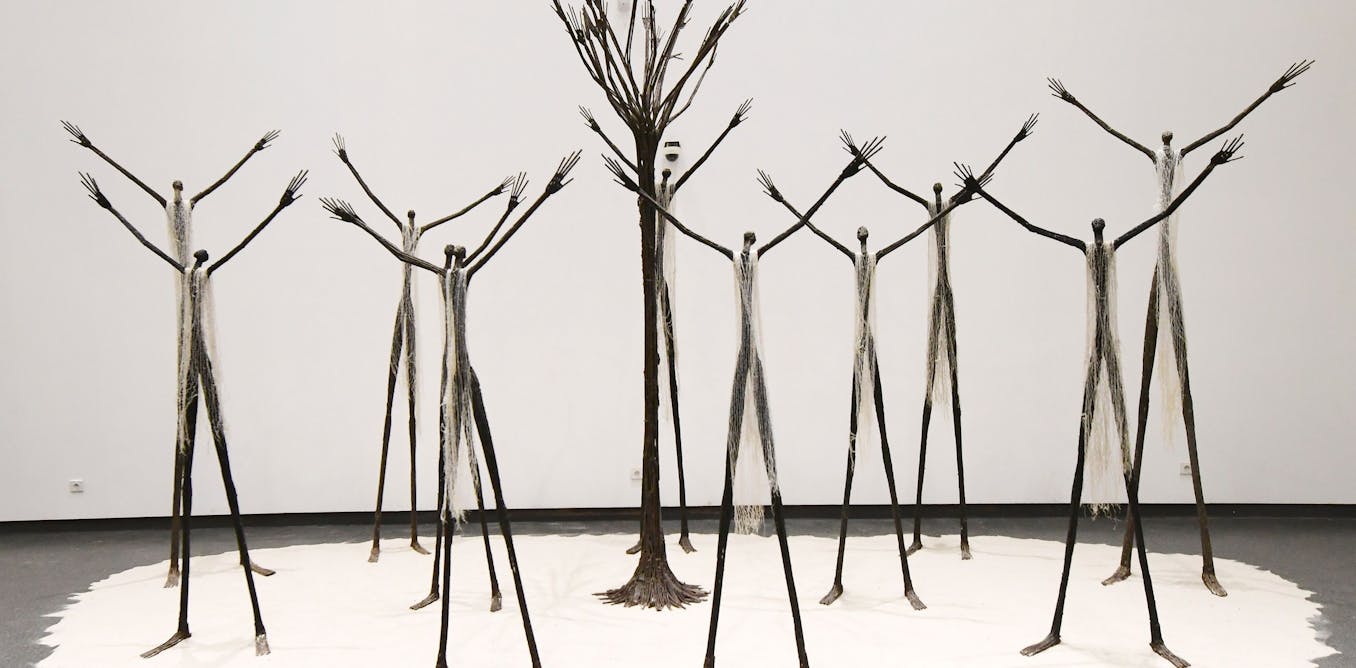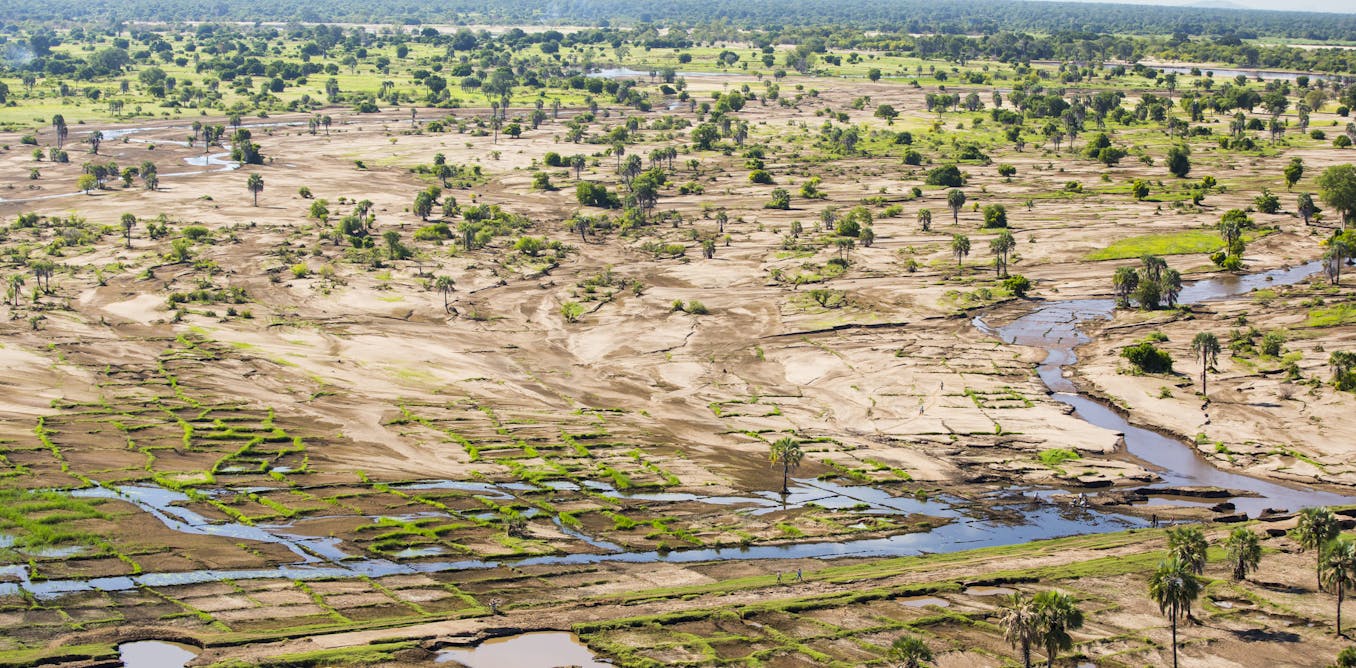We found a rare insect at an unspoilt stream in Nigeria – sign of a need to explore and protect
The presence of a vulnerable species in Ekor Waterfalls, Nigeria, is a signal that the area could support other rare or threatened species.
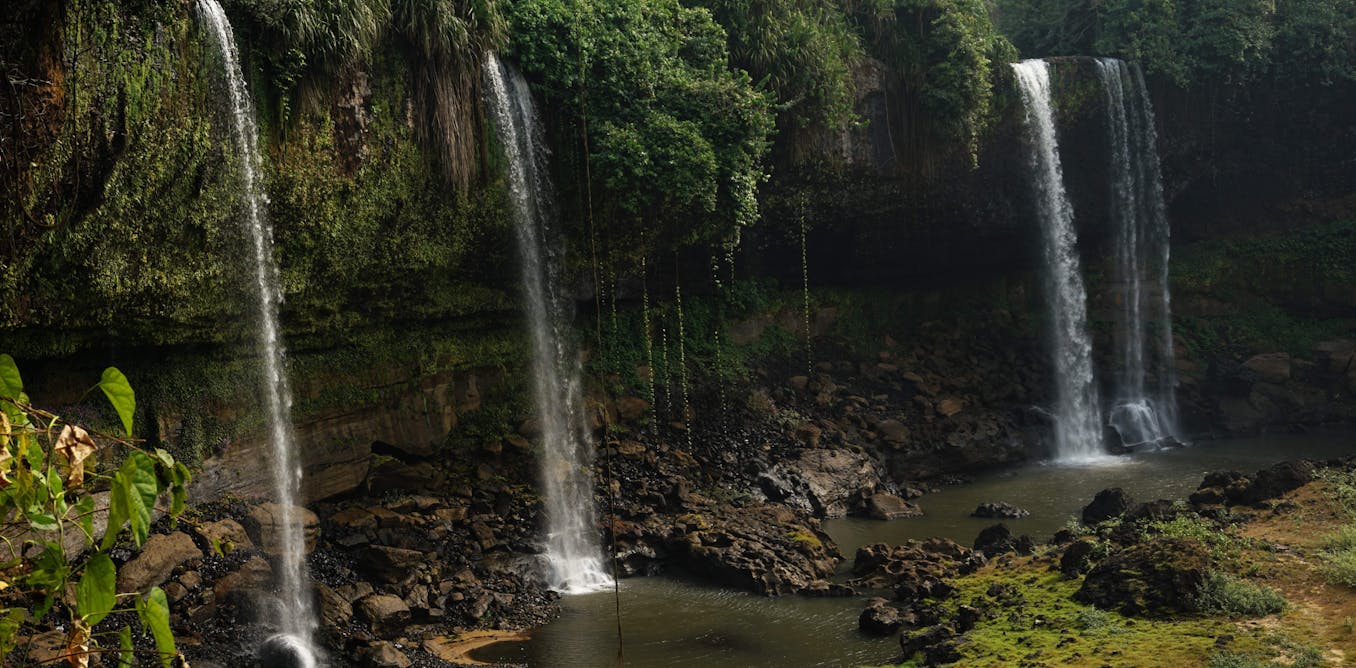
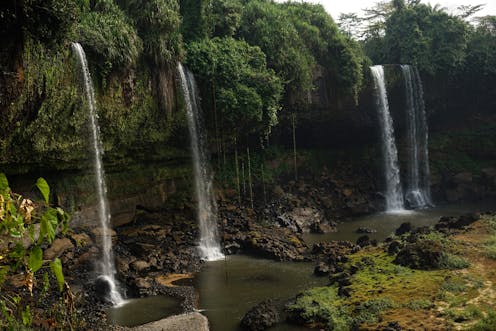
Wetlands are essential to the health of the planet. The plants that grow in and around the water store carbon, and wetland ecosystems support biodiversity and provide clean water and food.
Ramsar is the international organisation that protects important wetlands. There are 2,434 Ramsar sites worldwide; 420 are in Africa. The continent accounts for the highest percentage of the total surface area of Ramsar sites in the world. Most of Africa’s protected wetlands are in the north: Algeria has 50 sites, Tunisia 42 and Morocco 38. There are 11 Ramsar sites in Nigeria, eight of which are in the country’s north.
Uneven conservation of wetlands is partly the result of knowledge gaps about threatened species. If it’s not known where species are, they can’t be protected.
To qualify as a Ramsar site, a wetland must meet at least one of nine criteria. These include the presence of threatened (i.e. critically endangered, endangered, vulnerable) species. The rarity of wetland types, as well as water birds and fish, is also among the criteria.
The International Union for Conservation of Nature, too, includes “natural monuments” as a category of protected area, where biological diversity can be maintained. Waterfalls, craters and dunes are among the natural landscape features that can be natural monuments.
To explore the possibility of adding to the number of Ramsar sites in Nigeria, my research group carried out a freshwater ecological study in a remote area, Ekor Waterfalls, close to the border between Nigeria and Cameroon. We were surprised to find specimens of a vulnerable species of damselfly, never recorded before in Nigeria. This insect is considered an “umbrella species” – it is key to conserving other species in the tropical stream and its riparian forest.
The finding suggests that the area could support other rare or threatened species. It qualifies for protection under the International Union for Conservation of Nature criteria and Ramsar Convention. And it should be protected soon, before it is disturbed by human activity.
A potential Ramsar site
Our study area was Ekor Waterfalls, not designated as a protected area by either the state or federal government. The nearest village, about 2km away, is Abia in Etung Local Government Area of Cross River State, in the southern part of the country.
The stream at the waterfall is lined with trees and there is no evidence of human activity like farming or using water. As for dumping of waste, we saw only a few plastic containers in the area.
An astonishing finding of our study was the presence of the larva and recently moulted (teneral) adult of a vulnerable damselfly, Pentaphlebia stahli. Until now, the species’ occurrence in Nigeria was only speculative as specimens had not yet been collected. An adult specimen of the same species was recently recorded in the Cross River National Park, Nigeria, but it was not described and details of its ecological requirements were not provided.
Adult damselflies and dragonflies can fly great distances and the park is close to the Cameroon border. Larval damselflies are best used to indicate the local occurrence of the species since the larvae are sedentary and better for site-specific studies. The presence of larvae shows that ecological conditions are suitable over a period of time.
Our study recorded the presence of the insect’s larva in Nigeria for the first time.
It also provided information on the species’ habitat requirements, which are vital to its continued existence at Ekor Waterfalls. The stream was shaded, perennial, and free-flowing, with many water cascades. It was surrounded with about 85% forest cover. The bottom was rocky, with plant debris from the trees. We also measured conditions like water temperature and oxygen levels and found that the stream is of high ecological integrity. This is the ability of an ecological system to support and maintain a community of organisms that has species composition, diversity, and functional organisation comparable to those of natural habitats within a region.
Read more: Nigeria could gain by promoting more biodiversity awareness among its citizens
Umbrella species are those that require a large habitat span and specific habitat requirements. The species could confer protection on the stream and forest’s animal and plant life. Good water quality is essential for the survival of the species in the larval stage. This implies that many other pollution-sensitive species could thrive in the stream. Also, adult damselflies need the forest as a habitat (they return to the stream to lay their eggs). Protecting the forest means that other species could be preserved.
Immediate conservation action is required
The presence of a vulnerable species in Ekor Waterfalls is a signal that the area could support other rare or threatened species. Based on the International Union for Conservation of Nature and Ramsar Convention criteria, Ekor Waterfalls qualifies for protection. The presence of some plastic litter points to the possibility that the site could become polluted, like many Nigerian freshwater systems, if it is not protected.
Read more: Why microplastics found in Nigeria's freshwaters raise a red flag
The government authorities in Nigeria must move swiftly to make Ekor Waterfalls a natural monument and apply to Ramsar. It is the task of the National Focal Point for each country to initiate the process and draw the attention of the global body to the site. In Nigeria, this is domiciled in the federal ministry of environment.
Our study has revealed that there is a possibility of under-reporting the number of potential Ramsar sites in a region or country, especially in places where biodiversity conservation is not appreciated. Conservation biologists need support to explore Nigeria’s natural heritage while there is still something to protect.![]()
Emmanuel O. Akindele receives funding from the British Ecological Society.
What's Your Reaction?


















































































